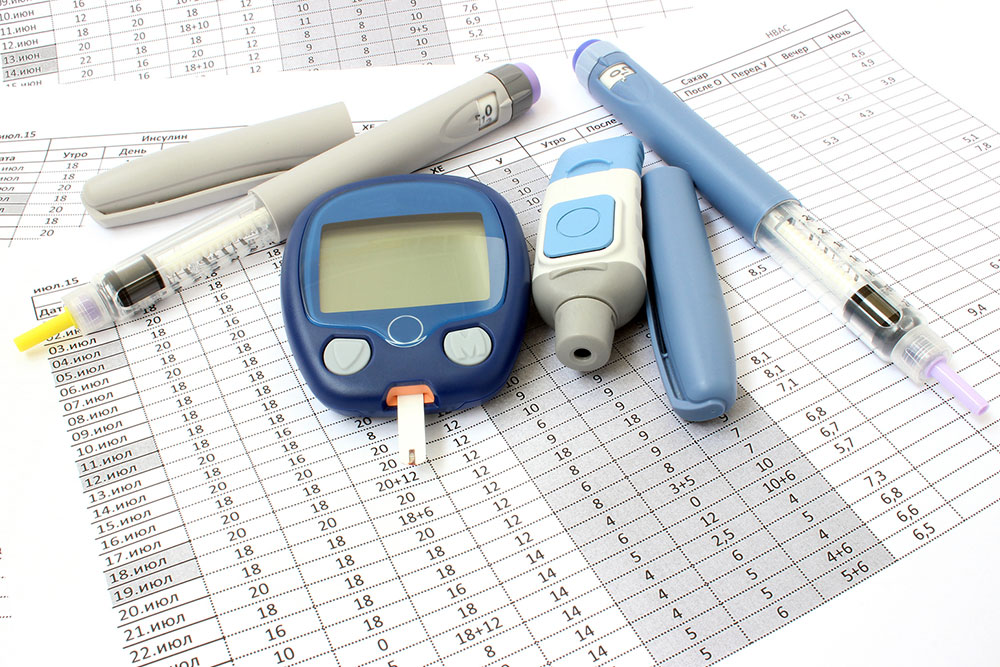Comprehensive Guide: 16 Proven Strategies to Maintain Healthy Blood Glucose Levels
This comprehensive article explores 16 scientifically proven strategies for maintaining healthy blood glucose levels. Covering diet, exercise, stress management, and lifestyle habits, it provides practical tips to prevent diabetes and promote overall metabolic health. Learn how regular physical activity, mindful eating, sleep routines, and natural supplements like ginger and cinnamon can help you control blood sugar effectively. This guide aims to empower readers with knowledge for long-term wellness through simple yet impactful lifestyle adjustments.

Comprehensive Guide: 16 Proven Strategies to Maintain Healthy Blood Glucose Levels
Effective and practical methods to regulate blood sugar levels naturally
Maintaining optimal blood glucose levels is essential for overall health and the prevention of chronic conditions like diabetes. The process of managing blood sugar involves a complex interplay of dietary choices, physical activity, lifestyle habits, and stress management. When blood glucose levels become unstable, it can lead to severe health complications, including nerve damage, cardiovascular disease, and kidney issues. Therefore, adopting a comprehensive and disciplined approach to daily habits is vital for blood sugar control.
Our digestive system plays a pivotal role in breaking down food into usable nutrients, primarily glucose. However, sometimes the body's ability to process and transfer this glucose into the cells becomes inefficient, leading to spikes in blood sugar. This is particularly common in individuals with insulin resistance or prediabetes. Managing blood glucose not only helps prevent dysfunction but also promotes energy stability, better mood, and overall vitality. The following detailed strategies are effective in regulating blood sugar levels, fostering long-term health, and enhancing quality of life.
Engage in Regular Physical Activity
Exercise is one of the most effective ways to lower blood sugar levels. Physical activity helps muscles utilize glucose for energy, thereby reducing blood glucose concentrations. Aerobic exercises like walking, jogging, cycling, or swimming are particularly beneficial. Additionally, strength training improves muscle mass, which enhances insulin sensitivity. Consistent exercise boosts metabolic rate, aids in weight management, and reduces the risk of developing type 2 diabetes. Ideally, adults should aim for at least 150 minutes of moderate-intensity exercise weekly, incorporating a variety of activities to keep the routine engaging and sustainable.
Never Skip Breakfast
Breakfast is often called the most important meal of the day because it jumpstarts your metabolism after an overnight fast. A nutritious morning meal helps stabilize blood sugar levels and prevents excessive hunger that can lead to overeating later. Including protein, healthy fats, and complex carbohydrates in breakfast helps maintain energy and supports consistent blood glucose levels through the day. Skipping breakfast can cause blood sugar dips and cravings, making it harder to adhere to healthy eating habits. Consider foods like eggs, oats, nuts, and fresh fruits for a balanced start to your day.
Include Complex Carbohydrates in Your Diet
Not all carbs are created equal. Replacing refined sugars and simple carbs with complex carbohydrates such as whole grains, legumes, vegetables, and fruits helps regulate blood sugar spikes. These foods are rich in fiber, which slows down carbohydrate digestion and promotes steady glucose absorption. They provide sustained energy and reduce the risk of insulin resistance. For example, choosing brown rice over white rice or whole wheat bread instead of white bread can significantly impact blood sugar control over time.
Incorporate Ginger into Your Meals
Ginger has been used for centuries in traditional medicine for its anti-inflammatory and digestive benefits. Recent research suggests that ginger supports blood glucose regulation by improving insulin sensitivity and glucose metabolism. Incorporating fresh ginger into teas, smoothies, stir-fries, or salads can be an easy and flavorful way to enhance your diet. Regular intake of ginger may contribute to better blood sugar management and overall metabolic health.
Manage Stress Effectively
Chronic stress influences blood sugar levels through hormonal pathways, primarily via the release of cortisol and adrenaline. Elevated stress hormones cause the liver to produce more glucose, leading to higher blood sugar. Effective stress management techniques like meditation, yoga, deep breathing exercises, and mindfulness can curb this response. Managing stress not only helps regulate blood sugar but also improves emotional well-being and reduces the risk of stress-related health issues.
Maintain Consistent Sleep Routines
Sleep plays a critical role in hormone regulation, including insulin and cortisol, which directly impact blood sugar levels. Poor or irregular sleep schedules are linked to increased insulin resistance and higher fasting blood glucose. Establishing a regular sleep routine, aiming for 7-9 hours of quality sleep nightly, enhances metabolic health. Avoid screens before bedtime, create a restful environment, and practice relaxing activities to improve sleep quality, thereby supporting stable blood glucose levels.
Stay Well-Hydrated
Proper hydration is essential for overall health and aids in the excretion of excess glucose through urine. Drinking sufficient water supports metabolic processes, including glucose utilization. Avoid sugary beverages, sodas, and sweetened drinks, which can cause rapid spikes in blood sugar. Instead, opt for plain water, herbal teas, or infused waters with natural flavors. Maintaining hydration helps prevent dehydration-induced blood sugar fluctuations.
Eat High-Fiber Foods
Dietary fiber, found abundantly in vegetables, fruits, nuts, seeds, and whole grains, slows the digestion of carbohydrates. This leads to a gradual release of sugar into the bloodstream, aiding in the prevention of sudden glucose spikes. Additionally, fiber promotes feelings of fullness, which helps in weight management and reduces overeating. Prioritize fiber-rich foods in every meal for optimal blood sugar regulation and gut health.
Select Low Glycemic Index Foods
The glycemic index (GI) ranks foods based on their impact on blood sugar levels. Foods with a low GI (55 or less) such as most fruits, non-starchy vegetables, and legumes, release their sugars slowly, helping maintain stable glucose levels. Incorporating low-GI foods into your diet is a strategic approach to prevent post-meal blood sugar spikes and support long-term glucose balance.
Practice Mindful Eating
Mindful eating involves paying close attention to the body's hunger and fullness cues, eating slowly, and savoring each bite. Using smaller plates and avoiding distractions like screens during meals can help control portion sizes. Being present during meals allows for better digestion and prevents overeating, which can cause blood sugar surges. Cultivating mindfulness around eating habits promotes healthier choices and supports blood glucose stability.
Regularly Monitor Blood Sugar Levels
Tracking your blood sugar with glucometers or continuous glucose monitoring systems provides valuable insights into how your body responds to different foods, activities, and stressors. Regular monitoring enables timely adjustments to diet, exercise, or medication, preventing dangerous fluctuations. This proactive approach helps maintain tight control over blood glucose and reduces the risk of complications associated with both high and low blood sugar levels.
Consume Magnesium-Rich Foods
Magnesium is a vital mineral that supports insulin sensitivity and glucose metabolism. Foods such as leafy green vegetables, nuts, seeds, whole grains, and legumes are excellent sources of magnesium. Ensuring adequate magnesium intake can improve blood sugar regulation, decrease insulin resistance, and contribute to overall metabolic health.
Use Cinnamon as a Supplement
Cinnamon contains compounds that can improve insulin sensitivity and mimic insulin’s action in the body. Adding cinnamon to oatmeal, smoothies, or teas is an easy way to harness its blood sugar-lowering effects. While more research is ongoing, cinnamon has shown promise as a natural adjunct in blood sugar management, especially for those with prediabetes or type 2 diabetes.
Eat Consistently and Avoid Skipping Meals
Maintaining regular meal times helps stabilize blood glucose levels and prevents the rollercoaster effect caused by irregular eating patterns. Consistent intake of balanced meals sustains energy, reduces cravings, and supports metabolic health. Skipping meals often leads to overeating later and results in unpredictable blood sugar spikes and dips.
Maintain a Healthy Weight
Achieving and maintaining a healthy weight is fundamental in preventing insulin resistance and type 2 diabetes. Combining a nutrient-dense diet with regular exercise promotes fat loss, especially around the abdomen, which is closely linked to better blood sugar control. Small, sustainable lifestyle changes can lead to significant improvements over time, reducing the risk of metabolic diseases.
Limit Alcohol Consumption
Excessive alcohol intake can cause blood sugar fluctuations, impair liver function, and increase the risk of developing insulin resistance. Moderation is key; drinking in moderation or abstaining altogether helps preserve liver health and maintain stable glucose levels. Always consult with healthcare providers about alcohol’s impact on your individual health condition.
Adopting a holistic approach that includes balanced nutrition, regular exercise, stress management, and good sleep hygiene can greatly improve blood sugar control. Consistent mindfulness and monitoring empower you to maintain steady glucose levels, prevent diabetes, and support a longer, healthier life. Small, incremental lifestyle changes yield remarkable benefits, making blood sugar regulation achievable and sustainable for everyone.





